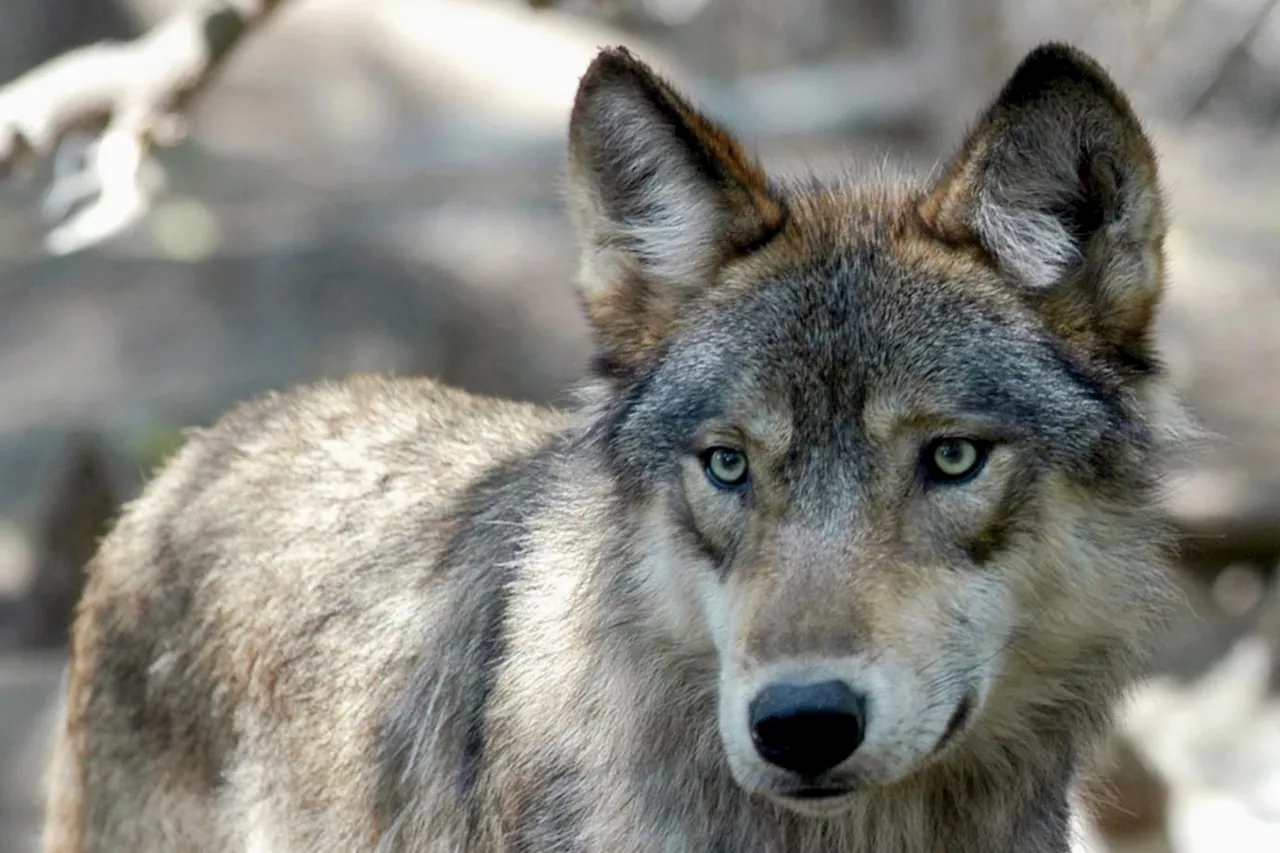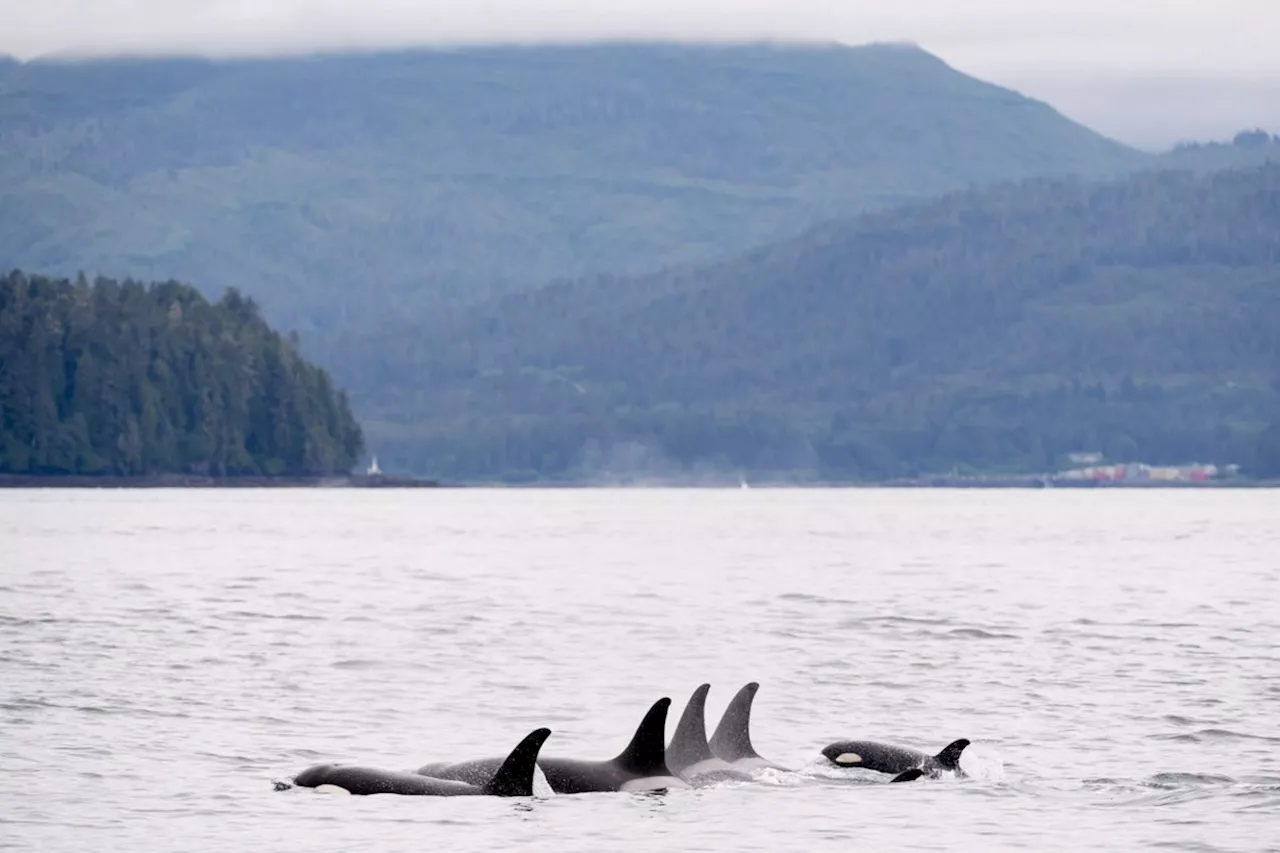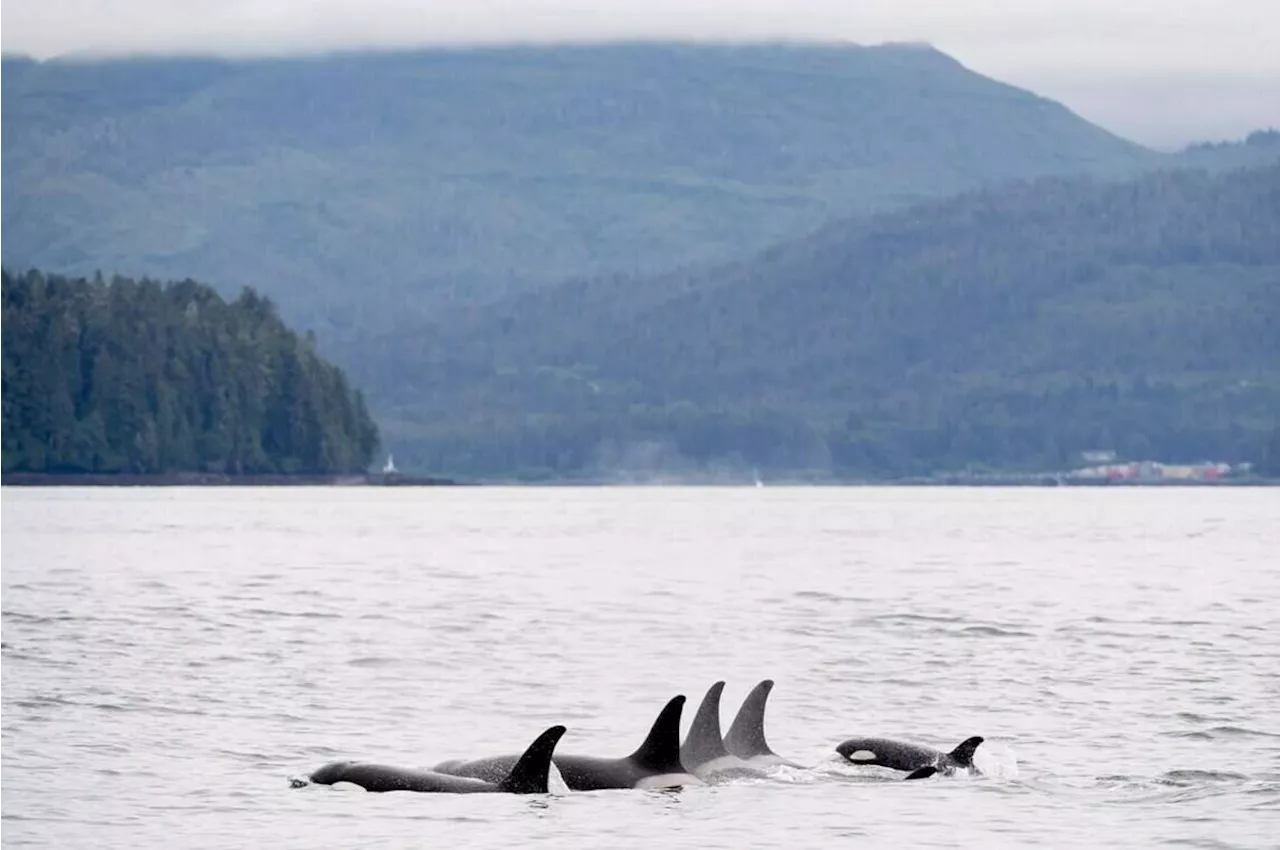Colorado wildlife officials have finished relocating 15 grey wolves from British Columbia to the U.S. state, an operation marred by threats against staff. The project, approved by Colorado voters in 2020 to reintroduce wolves, has faced opposition. Colorado Parks and Wildlife reported threats including 'watching,' threatening phone calls, and social media posts. Two previously relocated wolves have also been illegally shot. The captured wolves underwent veterinary care, but one died during the process.
Colorado wildlife officials say the capture of 15 grey wolves in British Columbia and their release in the U.S. state is complete, an operation they say led to unspecified threats against staff.
It says its officers were"watched" and were targeted by threatening phone calls and social media posts. The statement from Colorado Parks says the translocated wolves received a"high level of veterinary care," but one wolf died following its capture.
WOLVES COLORADO BRITISH COLUMBIA THREATS RELOCATION
Canada Latest News, Canada Headlines
Similar News:You can also read news stories similar to this one that we have collected from other news sources.
 US Wildlife Team Captures Wolves in British Columbia for Colorado ReleaseA team from Colorado Parks and Wildlife has begun capturing grey wolves in British Columbia to relocate to Colorado. The operation, lasting up to two weeks, aims to introduce up to 15 wolves annually over the next three to five years, following an agreement with the British Columbia government. The wolves will be tested, treated for disease, and collared before being released to help recover and maintain a self-sustaining wolf population in Colorado.
US Wildlife Team Captures Wolves in British Columbia for Colorado ReleaseA team from Colorado Parks and Wildlife has begun capturing grey wolves in British Columbia to relocate to Colorado. The operation, lasting up to two weeks, aims to introduce up to 15 wolves annually over the next three to five years, following an agreement with the British Columbia government. The wolves will be tested, treated for disease, and collared before being released to help recover and maintain a self-sustaining wolf population in Colorado.
Read more »
 Colorado to Capture Wolves from British Columbia for ReintroductionColorado officials are working to reintroduce grey wolves to the state by capturing up to 15 from British Columbia. The move aims to increase the chances of successful breeding and pack formation, adding genetic diversity to the Colorado wolf population.
Colorado to Capture Wolves from British Columbia for ReintroductionColorado officials are working to reintroduce grey wolves to the state by capturing up to 15 from British Columbia. The move aims to increase the chances of successful breeding and pack formation, adding genetic diversity to the Colorado wolf population.
Read more »
 Court Upholds Expansion of British Columbia Container FacilityA Federal Court judge dismissed a legal challenge by environmental groups arguing that the expansion of a container facility in British Columbia would threaten endangered killer whales and salmon. The court ruled that the federal government's approval of the project was reasonable and compliant with environmental legislation.
Court Upholds Expansion of British Columbia Container FacilityA Federal Court judge dismissed a legal challenge by environmental groups arguing that the expansion of a container facility in British Columbia would threaten endangered killer whales and salmon. The court ruled that the federal government's approval of the project was reasonable and compliant with environmental legislation.
Read more »
 Court Upholds Expansion of British Columbia Container FacilityA Federal Court judge has dismissed a legal challenge by environmental groups who argued that the expansion of a container facility on British Columbia's waterfront would threaten endangered southern resident killer whales and salmon. The court ruled that the federal government's approval of the project was reasonable and that conditions imposed on the project would mitigate its impact on the whales.
Court Upholds Expansion of British Columbia Container FacilityA Federal Court judge has dismissed a legal challenge by environmental groups who argued that the expansion of a container facility on British Columbia's waterfront would threaten endangered southern resident killer whales and salmon. The court ruled that the federal government's approval of the project was reasonable and that conditions imposed on the project would mitigate its impact on the whales.
Read more »
 British Columbia Ostrich Farmers Fight for Herd in Avian Flu OutbreakBritish Columbia ostrich farmers are appealing a Canadian Food Inspection Agency (CFIA) order to cull their 400-strong herd due to an avian flu outbreak. The farm, Universal Ostrich Farms Inc., argues that their ostriches could be valuable for studying the virus and possess unique research potential. They are requesting more time to demonstrate the health status of their flock and highlight the significance of their ongoing research with Dr. Yasuhiro Tsukamoto, who has extracted COVID-19 antibodies from ostrich eggs in British Columbia.
British Columbia Ostrich Farmers Fight for Herd in Avian Flu OutbreakBritish Columbia ostrich farmers are appealing a Canadian Food Inspection Agency (CFIA) order to cull their 400-strong herd due to an avian flu outbreak. The farm, Universal Ostrich Farms Inc., argues that their ostriches could be valuable for studying the virus and possess unique research potential. They are requesting more time to demonstrate the health status of their flock and highlight the significance of their ongoing research with Dr. Yasuhiro Tsukamoto, who has extracted COVID-19 antibodies from ostrich eggs in British Columbia.
Read more »
 Ontario Waterbombers Headed to British Columbia for California WildfiresOntario's Ministry of Natural Resources has revised its plan for wildfire support, sending two waterbombers from Dryden to British Columbia instead of potentially deploying them to California. The initial plan involved sending one waterbomber from Sault Ste. Marie and one from Dryden to British Columbia for possible deployment to California. However, the MNR has now confirmed that the two waterbombers from Dryden will be dispatched to British Columbia tomorrow, weather permitting. This decision comes as wildfires continue to rage in Southern California, fueled by high winds that have spread fires through communities like Pacific Palisades and Pasadena. Alberta, British Columbia, and Quebec have already sent resources to assist with California's wildfire response.
Ontario Waterbombers Headed to British Columbia for California WildfiresOntario's Ministry of Natural Resources has revised its plan for wildfire support, sending two waterbombers from Dryden to British Columbia instead of potentially deploying them to California. The initial plan involved sending one waterbomber from Sault Ste. Marie and one from Dryden to British Columbia for possible deployment to California. However, the MNR has now confirmed that the two waterbombers from Dryden will be dispatched to British Columbia tomorrow, weather permitting. This decision comes as wildfires continue to rage in Southern California, fueled by high winds that have spread fires through communities like Pacific Palisades and Pasadena. Alberta, British Columbia, and Quebec have already sent resources to assist with California's wildfire response.
Read more »
